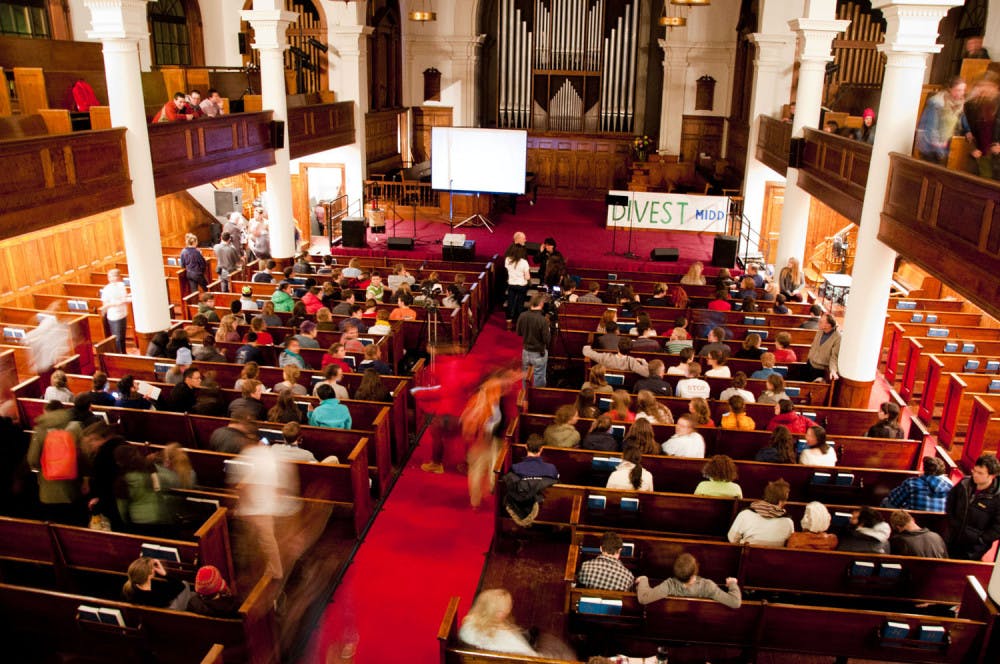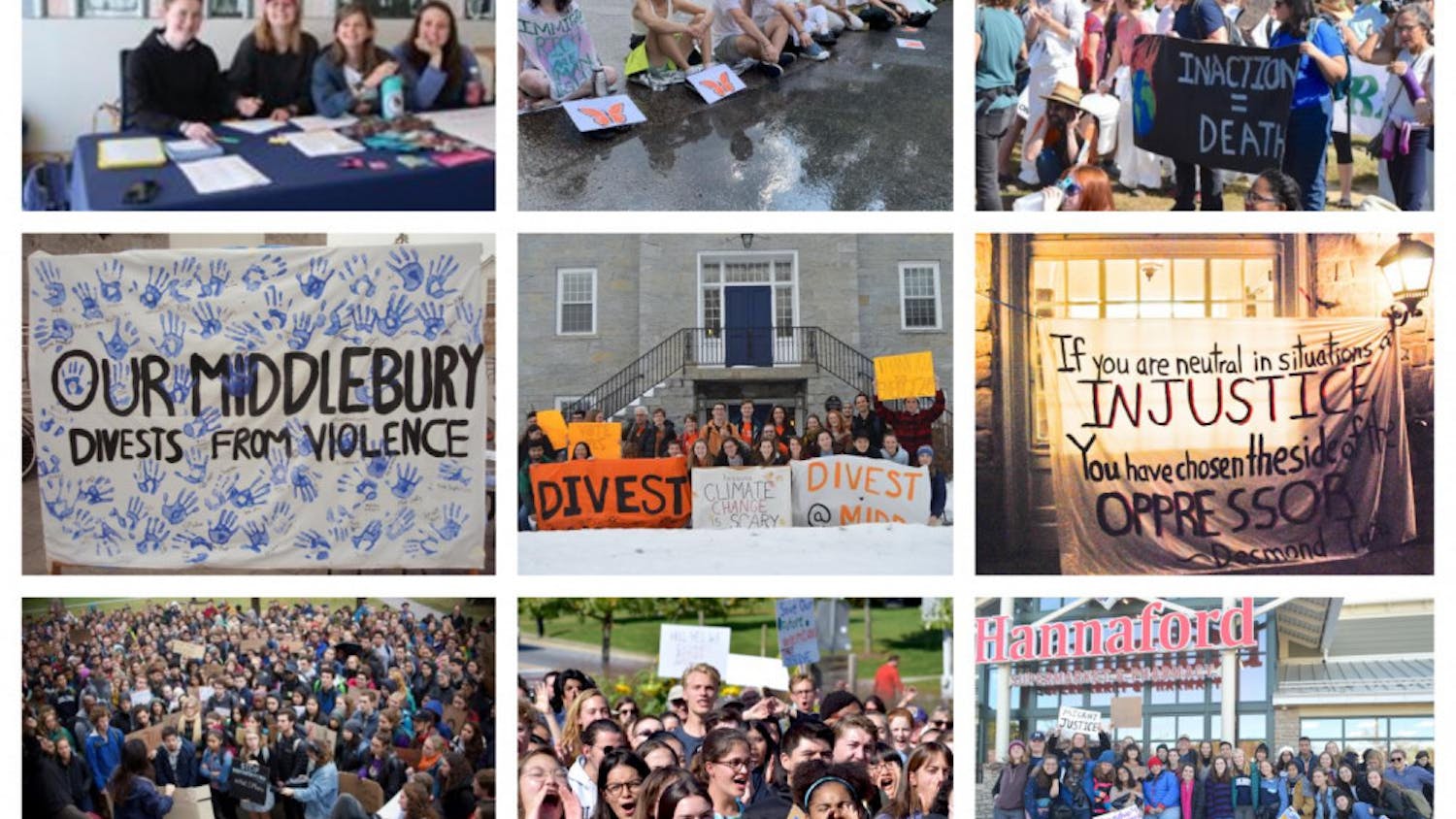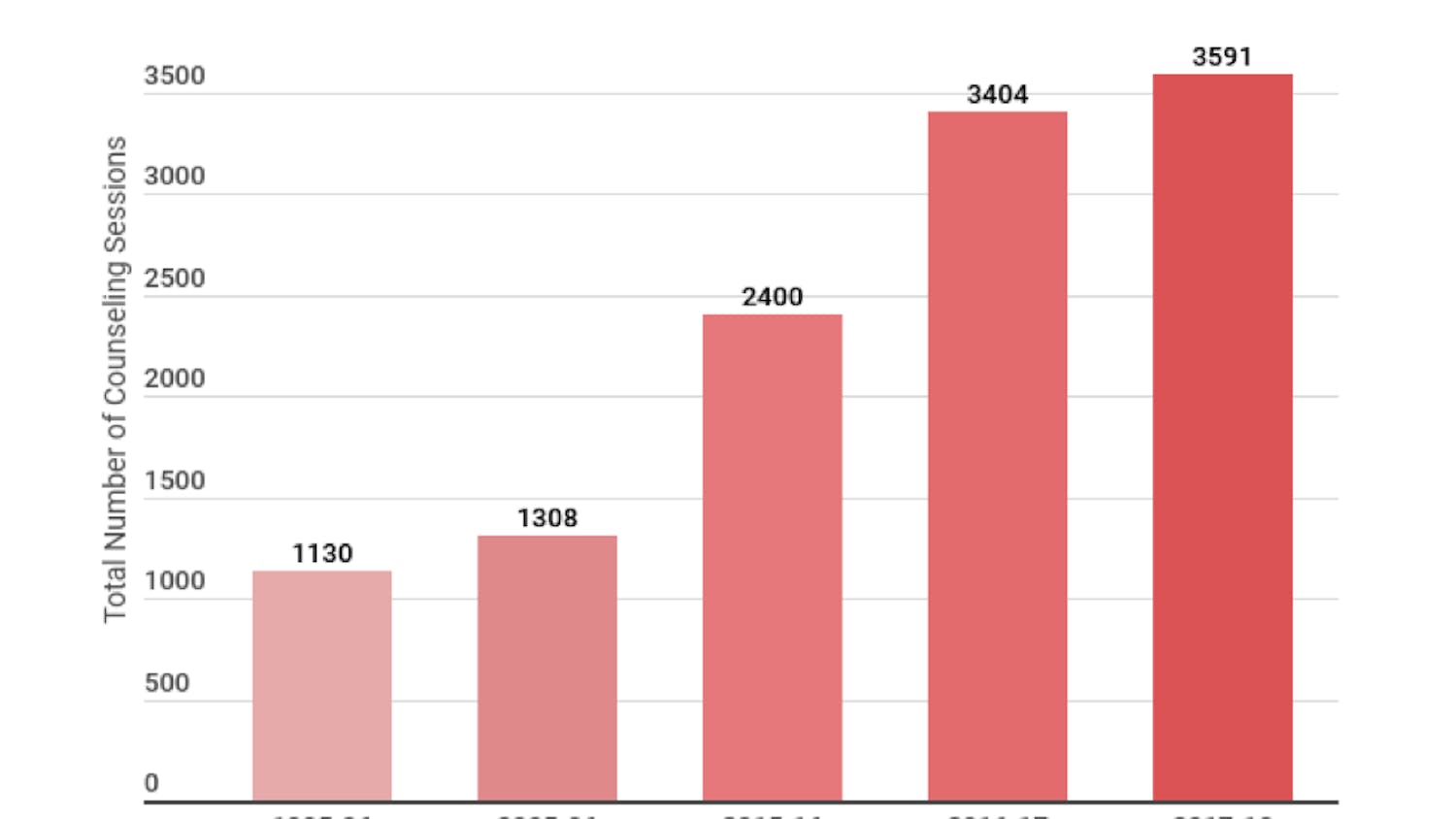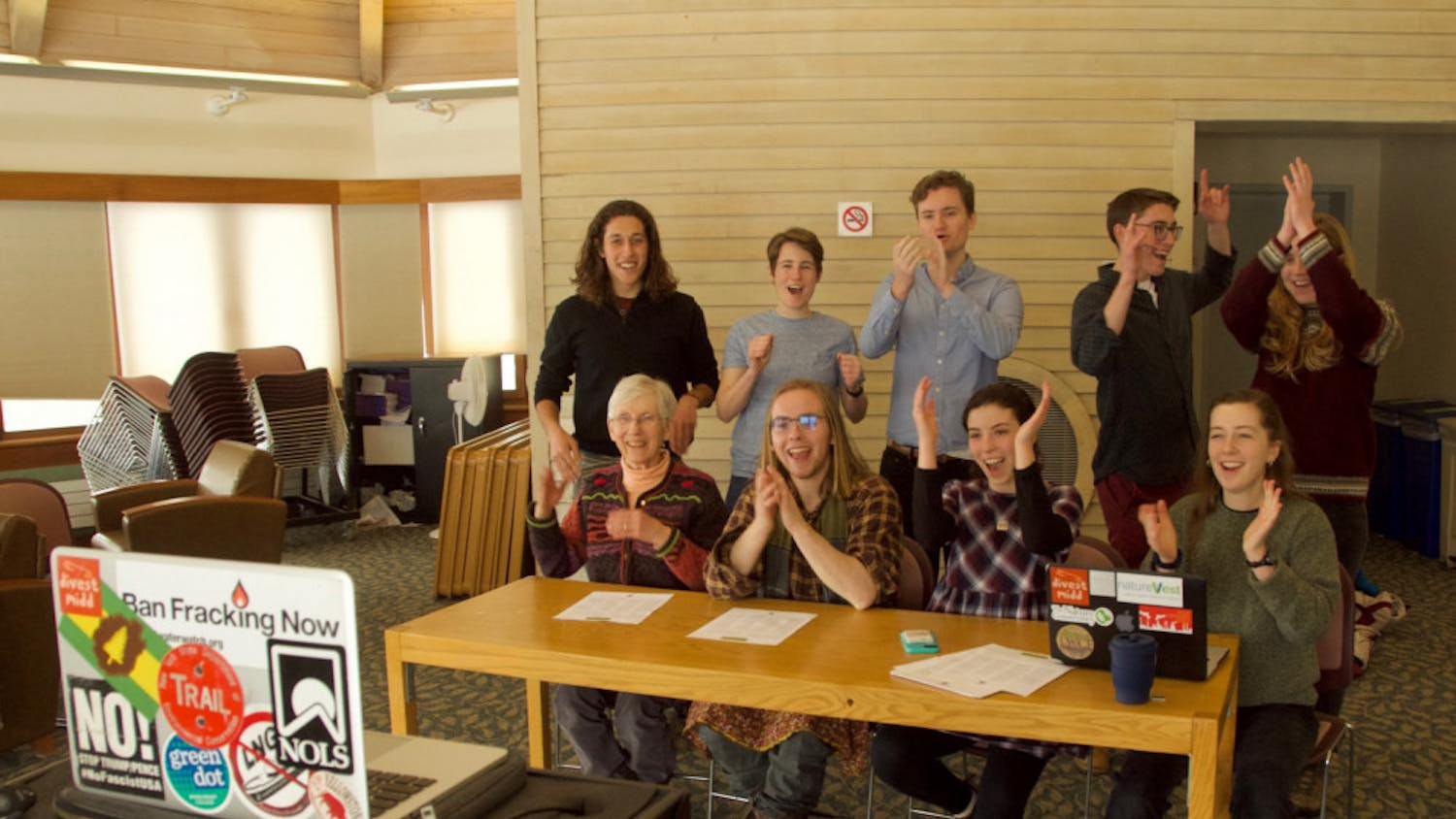The Campus Current will be liveblogging "Midd Does the Math" beginning at 7:30 p.m. from Mead Memorial Chapel. The event, which is sponsored by Divest for Our Future, will feature Schumann Distinguished Scholar Bill McKibben. Middlebury is the latest of many stops for McKibben, who traveled around the country on his Do the Math tour throughout the fall of 2012.
"Come join us for a night of education AND fun (in the true spirit of J-term)," Divest for Our Future writes. "We can promise that there will be a LOT of energy!"
The event comes only two days before Tuesday's panel on the College's endowment; the Campus will provide a subsequent liveblog at that event, beginning on Tuesday, Jan. 22 at 7:30 p.m.
With Additional Reporting and Photography by KATHRYN DESUTTER and CHARLOTTE GARDINER
-----
11:40 - For additional coverage and photographs from "Midd Does the Math", MiddBlog's Luke Whelan just posted about the event.
9:48 - Signing off from the Mead Memorial Chapel, but we'll be back on Tuesday evening for what will certainly be an interesting discussion. Additional coverage and analysis will be available in this Thursday's issue. Thanks for reading!
9:46 - After discussing the nature he has witnessed in each state on his Do The Math tour, McKibben stresses that community will be essential in winning this fight at Middlebury. "We will do what needs to happen ... Middlebury will show the rest of the country and the rest of the world a path forward from a very difficult place." This conclusion prompts a standing ovation from a majority of the audience.

9:41 - He continues, "When you come to get arrested, will you wear a necktie or dress?" McKibben wants to make a strong point, and remove the "radical" nature that is associated with the divestment movement. “There is nothing — and I mean nothing — radical in what we’re talking about here."
9:38 - McKibben speaks about the tools of influencing people to change through the political message sent by divestment. “Our goal is to find the other currencies — the currencies of movements, passions, experience, creativity.”
9:36 - McKibben asks students to complete the post cards, which were placed in the pews throughout Mead Chapel prior to the event. The postcards are pre-addressed to the board of trustees, and simply say "DIVEST MIDDLEBURY" on the front.

9:35 - He introduces a final video message from Jason Scores, economics professor at the Monterey Institute of International Studies. “We’re very proud that students have taken the lead to demand this change, and we’re very proud that many faculty are standing with them, too,” says Scores.
9:32 - McKibben asks for a freeze on new fossil fuel investments and to wind down existing fossil fuel investments in five years. "I think Middlebury will provide leadership." He continues, "If you’re going to green your campus you’ve got to green your portfolio."
9:30 - McKibben introduces a video from Desmond Tutu, who speaks about divestment's impact in ending South African apartheid. Tutu mentions the suffering of the African people due to climate change “even though they’ve done nothing to cause the situation.” He says, "Once again we can join together as a world and put on pressure" in solving climate change.
9:28 - "I think it would be a big mistake not to do this," Steyer concludes.
9:27 - McKibben introduces Tom Steyer, a friend and professional investo, to the stage. He speaks about his belief in climate change, and emphasizes its urgency. "We’re going to hit a nonlinear progression where things are going to get much worse, much faster," Steyer states. Steyer admits that he quit his job at the end of 2012 to become a "pain in the ass." He stresses urgency and openness: “It’s about dealing with the issue openly and confronting it. We’re actually going to have to accept the problem. I have been an investor for 30 years – I know that this will be very difficult for the institutions ... and [I know] that they can do it."
9:19 - Elder expresses gratitude to President of the College Ronald D. Liebowitz for organizing Tuesday’s panel on the College’s endowment. Audience members snap in agreement. As the program approaches the 1.5 hour mark, some students begin to leave.
9:17 - Elder reflects on flipping through the physical archives of the Campus in the special collections of the Davis Family Library. “In 1978, the College faculty voted to divest from all companies involved in South Africa. And then for 8 years, nothing happened,” says Elder. He speaks about the history of the divestment campaign during the 1980s at the College. Elder describes how members of the group “Students Against Apartheid” met with the Board of Trustees, and finally, they voted to divest from South Africa in July of 1986. (Three months prior, in the Campus' annual April Fools' issue, the headline quipped that the college had divested from the South Africa; perhaps, we'll revisit the idea in this year's April Fools' issue.)

9:12 - McKibben introduces Professor Emeritus John Elder, who states that “nothing could be more important” than the ongoing discussion. McKibben drinks one of the Otter Creek beers used in the analogy described below.
9:10 - We're moving onto what the audience can do: dinvestment. McKibben explains that 'we can't avoid using a certain amount of carbon in the way our society is set up, but it is wrong to profit from it.' He makes a similar statement about assault rifles.
9:07 - McKibben sets up an active analogy between the 2 degrees Celsius limit and the 0.08 limit on Blood Alcohol Content. As students pass bottles of Otter Creek Brewery ale onto the stage, McKibben describes how he could probably drink three or four and still remain below the legal limit. “The problem is that the fossil fuel industry are absolute party animals,” says McKibben. "Even with all this beer ... the fossil fuel industry continues looking for more." Three cases of Keystone Light, with 30 cans in each, are loaded onto the stage. McKibben explains that the fossil fuel industry is analogous to the copious amount of Keystone.

9:04 - McKibben speaks in between words from a video of Exxon Mobil CEO Rex Tillerson. The crowd laughs as McKibben pokes fun at Tillerson’s claim that the effects of climate change can be softened if we “move around crop production areas.”
9:01 - "They’ve stifled every rational effort … to put a price on carbon.” McKibben describes BP’s development of the slogan “Beyond Petroleum” and their subsequent decision to sell off the sustainable divisions of the company.
8:59 - McKibben explains that major progress in renewable energy is inhibited by “the basic fact that the fossil fuel industry cheats.” While Middlebury cannot dump its trash in the middle of Rt. 125, the fossil fuel industry can "pour their waste out for free."
8:55 - The good news: "There's plenty we can do ... and it's by no means impossible." McKibben discusses recent improvements in Germany and China as great examples (i.e. solar panels and hot water heaters on top of buildings in Chinese cities). "They have exerted more political will."
8:53 - “I want you to get a sense of who your brothers and sisters are in this fight,” says McKibben. He shows pictures submitted to 350.org from citizens around the globe who have been affected by climate change. One picture shows citizens of Haiti affected by a flood holding a sign stating, “Your actions affect me." Additional photos are available on 350.org's Flickr.
8:49 - Following Klein's film, McKibben introduces another special video from Canadian indigenous activist Clayton Thomas-Muller. He praises Middlebury's efforts, but the video cuts out about midway through.
8:45 - McKibben pays tribute to author and activist Naomi Klein, who is currently working on her movement titled “Idle No More” in Canada. McKibben introduces a video recorded by Klein, a board member of 350.org, filmed specifically for "Midd Does the Math". Klein challenges students to take action: "We need you to provide a strong, coherent message. There is no doubt in my mind that others will follow."
8:40 - McKibben introduces three numbers: 2°C, 565 gigatons of carbon and 2795 gigatons of coal, oil and gas. Do the Math provides explanation: "We can burn less than 565 more gigatons of carbon dioxide and stay below 2°C of warming — anything more than that risks catastrophe for life on earth. The only problem? Fossil fuel corporations now have 2,795 gigatons in their reserves, five times the safe amount. And they’re planning to burn it all — unless we rise up to stop them." McKibben continues in saying, "These companies are a road force. They're outlaws against the laws of physics. If they carry out their business plan, the planet tanks."
8:37 - “What we have to talk about tonight is how to keep things from getting totally out of control. All we’re talking about tonight is avoiding calamity — complete calamity.”
8:35 - "You guys are on the front lines ... so let's get to work." McKibben mentions his popular article from Rolling Stone, which gained ten times more likes on Facebook than an article about "hot, ready and legal" Justin Bieber from the same issue. He jokes that it may have been due to his own "soulful stare."
8:33 - McKibben continues by showing photos of community members arrested during the aforementioned protests in Washington D.C. In an adjoining cell block was 72-year-old Gus Speth; McKibben recalls him stating, "I've been in a lot of important positions in this town, but none of them seem as important as the one that I'm in now."
8:28 - “I’m way more nervous than I’ve been … here I am with my neighbors and friends. I’m in a place where I am so deeply hopeful we can maange to get the right thing done, because it’s our community.” He continues, “None of us should have to be here tonight — not on a rational planet.”
8:26 - McKibben takes the stage to large applause.

8:25 - Isham introduces a video from environmental activist Van Jones. He speaks about the history of 350.org, its impact around the world, and the actions taken by the organization to promote awareness of climate change, including the 2011 protests regarding the Keystone Pipeline.
8:21 - Professor of Economics and Chair of the Environmental Science Department Jon Isham comes onto the stage. "How are you Middlebury? Are you ready to do the math?" Isham, who is currently teaching a winter term course titled “Social Entreprenuership in the Liberal Arts,” speaks to the crowd about the complexities of building a world of social justice. “It’s time to carve out our own piece of history,” declares Isham.

8:20 - Neubauer introduces Ellie, a student from the University of Vermont. She speaks to the crowd about the divestment movement at UVM: “We feel responsible to keep the culture at UVM as pure as we can.” After Ellie concludes, Stuart leads the audience in a 'mic-check,' earning loud applause and snaps from the crowd.
8:18 - Greta Neubauer ’14.5 of Divest for Our Future and Molly Stuart ’15.5 of the Dalai Lama Welcoming Committee take the stage. After a moment of silence for the Abenaki people, each student discusses her reason for divestment: Neubauer would like to divest in order to prevent climate change, while Stuart were like to divest in order to stop violence. “Now is the time to take this powerful step,” Neubauer says.
8:13 - May Boeve ’06.5, executive director and co-founder of 350.org, and Phil Aroneanu ’07, U.S. campaign manager and co-founder of 350.org, introduce the event; they tell the story of starting 350.org at the College. “We left a couple things undone — one of them was divesting,” says Aroneau. "Middlebury needs to divest.” Boeve reminds the audience that tonight is the eighth anniversary of the founding of the Sunday Night Group.

8:07 - Musician Max Godfrey '14 has joined Alpenglow on stage. Together, they sing an original song entitled “Susquehana Drill Town,” based on their collective experiences in Cooperstown, N.Y. Cooperstown is located on the Marcellus Shale, a region rich in methane deposits and ripe for hydraulic fracking.
8:00 - Alpenglow thanks the audience and improves their usually lackluster audience banter with a joke from violinist Elori Kramer ’13.5: “We were told if we played here, Bill McKibben would tweet about us.” Will you be tweeting about Alpenglow, @billmckibben?
7:54 - Community members have begun to file into Mead. While the center pews are largely full, plenty of space remains available on the sides and upstairs at the Chapel. Alpenglow’s stripped-down performance has set a calm, reverent mood.

7:47 - As promised, Alpenglow has taken the stage to warm up the crowd for McKibben. This is there second time the band is on stage in as many nights, having performed on Saturday evening as well. The stream of students has slowed; most listen quietly to Alpenglow.
7:36 - Doors have opened and Mead Chapel is slowly filling up. The Chapel is dimly lit with a large sign behind the stage reading 'DIVEST MIDD.' So far only students have been allowed in; community members will be permitted beginning at 7:45.





